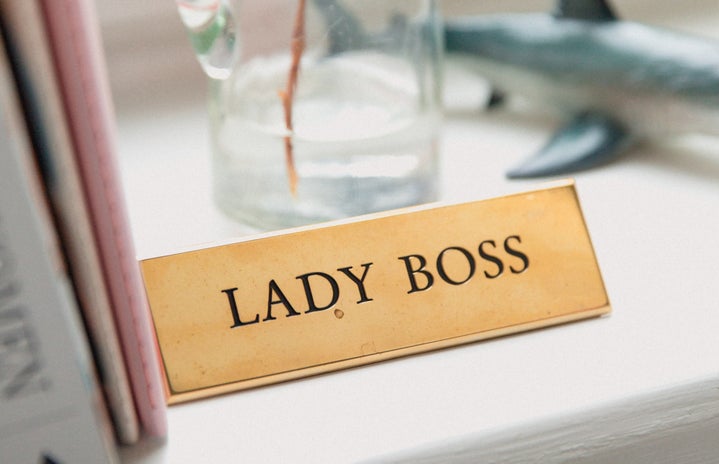The term ‘Girlboss’ first became popularized in 2014, and it was everywhere: every young girl or woman preparing to enter the workforce was encouraged to ‘channel their inner girlboss’ and hustle to reach the top. Yet now, only eight years later, the term ‘girlboss’ is ridiculed and criticized, giving the word a very quick rise and an even quicker fall.
‘Girlboss’ first entered the mainstream media in 2014, when Sophia Amoruso, the founder of Nasty Gal, titled her autobiography #GIRLBOSS. The book was all about her rise from nothing to becoming a successful business woman, and it was even adapted into a Netflix series titled ‘Girlboss.’ The main idea of the autobiography and the concept of girlboss-ness is convenient incrementalism, or the idea of slowly building up to something instead of tackling it all at once.
Immediately upon the creation and popularization of this concept, Girl Boss Feminism became the next big thing. Young girls and young women were encouraged to release the girlboss within them, and the idea was that the focus of women in power could uplift the female gender. It became an entire movement intended to empower all women in the workplace.

However, the reality of girlbossing was a lot messier and a lot less successful; for one thing, Amoruso herself had accusations of an abusive workplace. This shows one of the core problems of Girl Boss Feminism and the concept of the Girlboss: in reality, it consisted of one woman seemingly clawing her way to the top, leaving behind other women in her wake. The “women supporting other women” concept seemed to be left behind when looking at the management practices of self-proclaimed girlbosses. It becomes clear that companies who have embraced the ‘Girlboss’ narrative have only done so in their branding, but not so much in their practices.
There is also the problem that Girlboss-ism seems to be just another branch of White Feminism, and that it only tends to focus on the struggles and uplifting of white women, while leaving behind forms of oppression that women of color have to face every day. The typical ‘Girlboss’ that is shown by the media is almost always white, and the Girlboss narrative seems to prioritize white women over women of color. What companies that have branded themselves with Girlboss Feminism fail to realize is that promoting only white women is not the progressive action and heroic cause that they think it is, because being a feminist mean uplifting all women of all races, sexualities, and identities.
It is also important to note that the use of the term ‘Girlboss’ when referring to a female CEO or a female in a powerful position can play into the exact opposite hand of what it was intended to. Creating a whole new word for a woman who is in a position of power (including words like ‘Boss Babe’ or ‘She-EO’) further paints a divide between women and men who hold the same position. No one calls a man a ‘Boyboss,’ they’re just seen as the boss, which shows that the Girlboss narrative only helps along the antiquated idea that the ‘norm’ for a boss is male.

Girlboss feminism paints the picture to women that there is a specific person to look like and a specific job that you should have in order to be a feminist and in order to break down gender inequality, which is a harmful lesson to teach young women. Instead of women being taught that being the boss is the end-all-be-all of feminism and of being a strong woman, we should be taught that being the boss is one path of many in order to represent womanhood. Not everyone wants to be the boss, and that’s okay; the ability to choose your own individual path without anyone telling you what you can and cannot do should be what feminism is all about.
In recent years, we have seen more and more people criticizing the term ‘Girlboss’ and rightfully so. Of course, it is important to have more women in positions of power, but Girlboss feminism is not the way to do it. The fall of the ‘Girlboss’ seems like it was inevitable right from the creation of the word, and maybe with it aside, it will open the door for a new wave of feminism that focuses on all women, not just white women who have reportedly mistreated other women just to get to the top.


